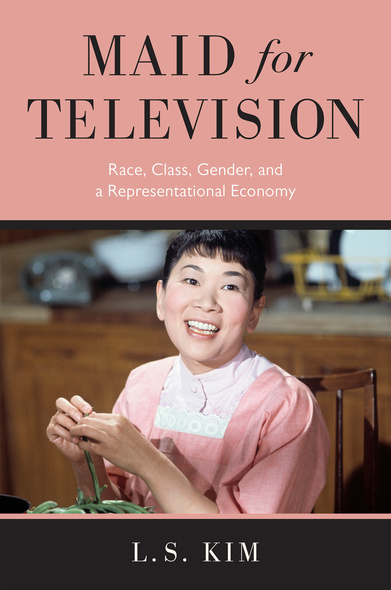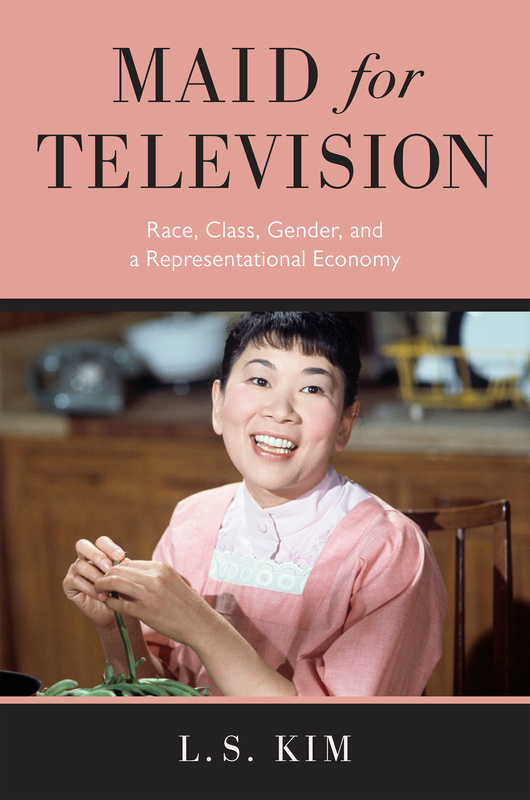
224 pages, 6 1/8 x 9 1/4
30 B-W images
Paperback
Release Date:11 Aug 2023
ISBN:9781978826991
Hardcover
Release Date:11 Aug 2023
ISBN:9781978827004
Maid for Television
Race, Class, Gender, and a Representational Economy
By L. S. Kim
Rutgers University Press
Maid for Television examines race, class, and gender relations as embodied in a long history of television servants from 1950 to the turn of the millennium. Although they reside at the visual peripheries, these figures are integral to the idealized American family. Author L. S. Kim redirects viewers' gaze towards the usually overlooked interface between characters, which is drawn through race, class, and gender positioning. Maid for Television tells the stories of servants and the families they work for, in so doing it investigates how Americans have dealt with difference through television as a medium and a mediator.The book philosophically redirects the gaze of television and its projection of racial discourse.
Maid for Television is a rigorously intersectional and interdisciplinary study that places the racialized domestic servant at the center of U.S. television history. This figure is ubiquitously invisible, yet also absolutely essential to maintaining the white middle-class family as the nation’s social, economic, and political norm.
L. S. KIM is an associate professor in the Department of Film and Digital Media at the University of California, Santa Cruz. She has written about race, class, gender, and genre for The Routledge Companion to Asian American Media, The Sage Handbook of Television Studies, Flow TV, Journal of Film and Video, Anti-Feminisms in Media Culture, and Ms. Magazine. She serves on the Ms. Committee of Scholars, and has served on the American Film Institute Awards jury.
1 Introduction: The Figure of the Racialized Domestic in American Television
2 Domesticating Blackness: African Americans in Service in Comedy and Drama
3 Shades of Whiteness: White Servants Keeping Up a Class Ideal
4 Unresolvable Roles: Asian American Servants as Perpetual Foreigners
5 Invisible but Viewable: The Latina Maid in the Age of Nannygate
Epilogue
Acknowledgments
2 Domesticating Blackness: African Americans in Service in Comedy and Drama
3 Shades of Whiteness: White Servants Keeping Up a Class Ideal
4 Unresolvable Roles: Asian American Servants as Perpetual Foreigners
5 Invisible but Viewable: The Latina Maid in the Age of Nannygate
Epilogue
Acknowledgments
Notes
Bibliography
Index
Bibliography
Index








